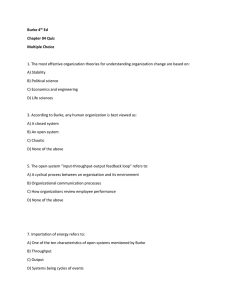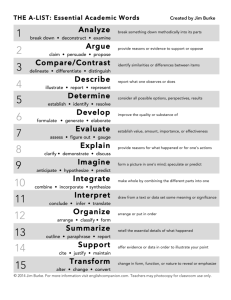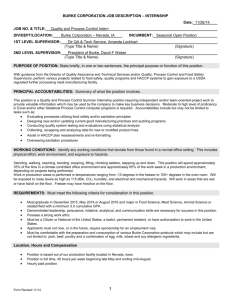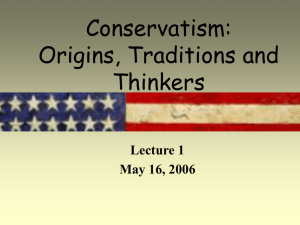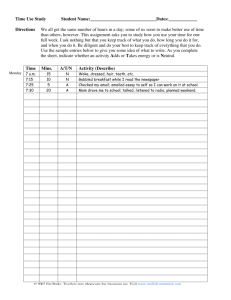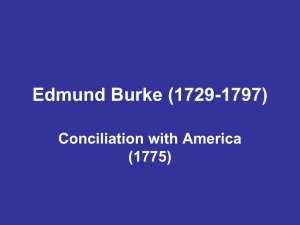F T L R
advertisement
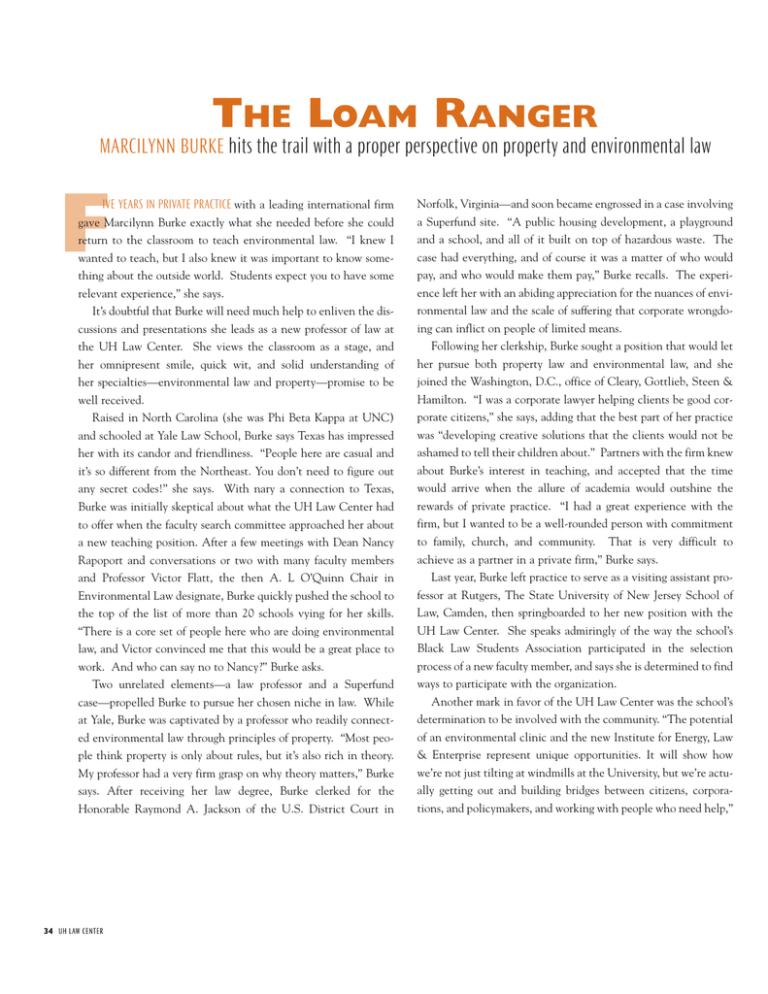
THE LOAM RANGER MARCILYNN BURKE hits the trail with a proper perspective on property and environmental law F IVE YEARS IN PRIVATE PRACTICE with a leading international firm Norfolk, Virginia—and soon became engrossed in a case involving gave Marcilynn Burke exactly what she needed before she could a Superfund site. “A public housing development, a playground return to the classroom to teach environmental law. “I knew I and a school, and all of it built on top of hazardous waste. The wanted to teach, but I also knew it was important to know something about the outside world. Students expect you to have some case had everything, and of course it was a matter of who would pay, and who would make them pay,” Burke recalls. The experi- relevant experience,” she says. ence left her with an abiding appreciation for the nuances of envi- It’s doubtful that Burke will need much help to enliven the discussions and presentations she leads as a new professor of law at the UH Law Center. She views the classroom as a stage, and her omnipresent smile, quick wit, and solid understanding of her specialties—environmental law and property—promise to be well received. Raised in North Carolina (she was Phi Beta Kappa at UNC) and schooled at Yale Law School, Burke says Texas has impressed her with its candor and friendliness. “People here are casual and it’s so different from the Northeast. You don’t need to figure out any secret codes!” she says. With nary a connection to Texas, Burke was initially skeptical about what the UH Law Center had to offer when the faculty search committee approached her about a new teaching position. After a few meetings with Dean Nancy Rapoport and conversations or two with many faculty members and Professor Victor Flatt, the then A. L O’Quinn Chair in Environmental Law designate, Burke quickly pushed the school to the top of the list of more than 20 schools vying for her skills. “There is a core set of people here who are doing environmental law, and Victor convinced me that this would be a great place to work. And who can say no to Nancy?” Burke asks. Two unrelated elements—a law professor and a Superfund case—propelled Burke to pursue her chosen niche in law. While at Yale, Burke was captivated by a professor who readily connected environmental law through principles of property. “Most people think property is only about rules, but it’s also rich in theory. My professor had a very firm grasp on why theory matters,” Burke says. After receiving her law degree, Burke clerked for the Honorable Raymond A. Jackson of the U.S. District Court in ronmental law and the scale of suffering that corporate wrongdoing can inflict on people of limited means. Following her clerkship, Burke sought a position that would let her pursue both property law and environmental law, and she joined the Washington, D.C., office of Cleary, Gottlieb, Steen & Hamilton. “I was a corporate lawyer helping clients be good corporate citizens,” she says, adding that the best part of her practice was “developing creative solutions that the clients would not be ashamed to tell their children about.” Partners with the firm knew about Burke’s interest in teaching, and accepted that the time would arrive when the allure of academia would outshine the rewards of private practice. “I had a great experience with the firm, but I wanted to be a well-rounded person with commitment to family, church, and community. That is very difficult to achieve as a partner in a private firm,” Burke says. Last year, Burke left practice to serve as a visiting assistant professor at Rutgers, The State University of New Jersey School of Law, Camden, then springboarded to her new position with the UH Law Center. She speaks admiringly of the way the school’s 34 UH LAW CENTER Black Law Students Association participated in the selection process of a new faculty member, and says she is determined to find ways to participate with the organization. Another mark in favor of the UH Law Center was the school’s determination to be involved with the community. “The potential of an environmental clinic and the new Institute for Energy, Law & Enterprise represent unique opportunities. It will show how we’re not just tilting at windmills at the University, but we’re actually getting out and building bridges between citizens, corporations, and policymakers, and working with people who need help,” Burke says. As she gets up to speed on her teaching, she plans to complete a law review article that examines the friction that flares when private property rights collide with the Endangered Species Act. And in short order, she plans to plant roots with a Baptist church that will allow her to pursue her musical interest in Gospel singing. “I’ve had several people make suggestions, and I’m looking forward to finding a new church home,” she says. As she sets up shop, home, and career, Burke knows she has made the right decision. “Sometimes you second-guess yourself after making a big move. I haven’t had those feelings, and I’m very excited about getting into the classroom. I promise I will give them something to take home,” she says. BRIEFCASE fall2002 35
